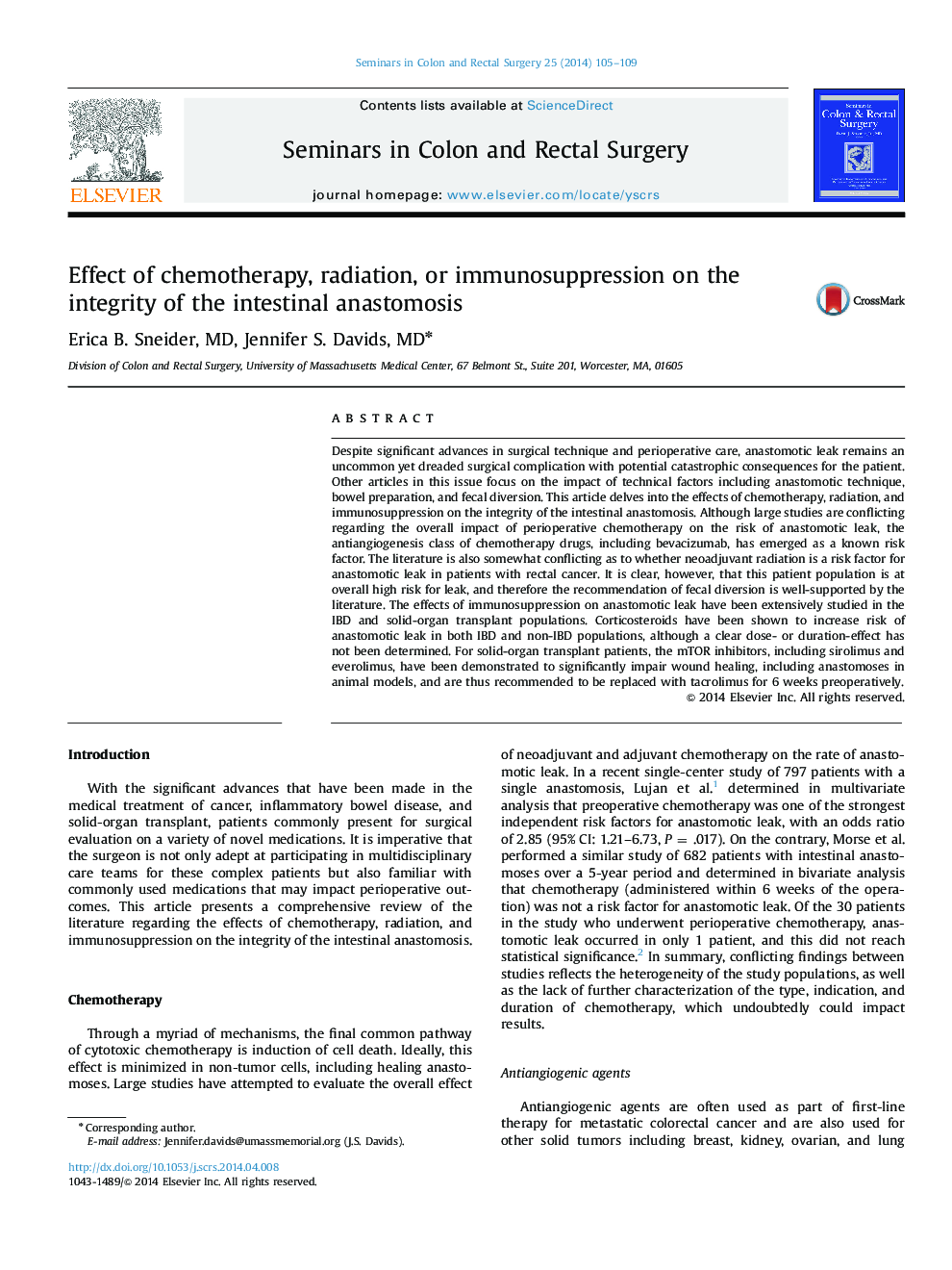| Article ID | Journal | Published Year | Pages | File Type |
|---|---|---|---|---|
| 3319365 | Seminars in Colon and Rectal Surgery | 2014 | 5 Pages |
Abstract
Despite significant advances in surgical technique and perioperative care, anastomotic leak remains an uncommon yet dreaded surgical complication with potential catastrophic consequences for the patient. Other articles in this issue focus on the impact of technical factors including anastomotic technique, bowel preparation, and fecal diversion. This article delves into the effects of chemotherapy, radiation, and immunosuppression on the integrity of the intestinal anastomosis. Although large studies are conflicting regarding the overall impact of perioperative chemotherapy on the risk of anastomotic leak, the antiangiogenesis class of chemotherapy drugs, including bevacizumab, has emerged as a known risk factor. The literature is also somewhat conflicting as to whether neoadjuvant radiation is a risk factor for anastomotic leak in patients with rectal cancer. It is clear, however, that this patient population is at overall high risk for leak, and therefore the recommendation of fecal diversion is well-supported by the literature. The effects of immunosuppression on anastomotic leak have been extensively studied in the IBD and solid-organ transplant populations. Corticosteroids have been shown to increase risk of anastomotic leak in both IBD and non-IBD populations, although a clear dose- or duration-effect has not been determined. For solid-organ transplant patients, the mTOR inhibitors, including sirolimus and everolimus, have been demonstrated to significantly impair wound healing, including anastomoses in animal models, and are thus recommended to be replaced with tacrolimus for 6 weeks preoperatively.
Related Topics
Health Sciences
Medicine and Dentistry
Gastroenterology
Authors
Erica B. MD, Jennifer S. MD,
